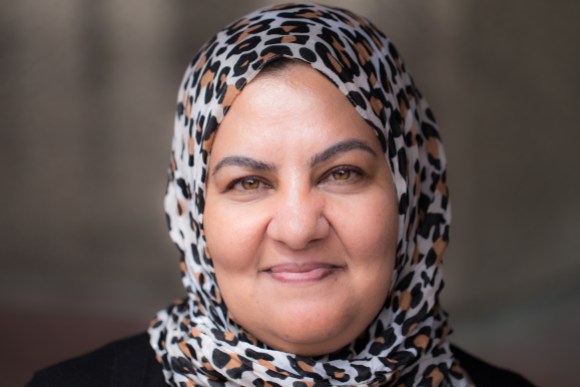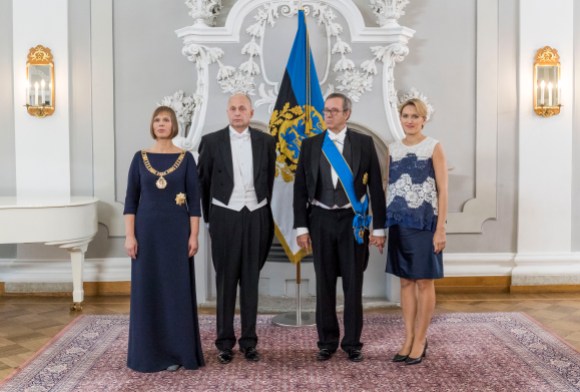
For Mervat Salman, becoming a Wikipedia editor was almost part of her destiny. A child encyclopedist (“I compiled about 400 pages of my own encyclopedia,” she recalls), it is perhaps no wonder that after discovering Wikipedia through a search engine, Mervat was immediately drawn to the idea of sharing her knowledge with the world.
Having first started as a casual reader of just one Wikipedia article a day, exasperated at the low quality of automated translations to Arabic, Mervat soon turned to improving spelling, punctuation, grammar and structure of sentences in existing articles before deciding to take the big step of creating new articles on her own, with the page on Gargamel, the main antagonist in the comic book series The Smurfs, as her Wikipedia debut. With the help of the Arabic Wikipedia community group on Facebook, just after a year, Mervat became a community-elected administrator; four years, 900 new articles and over 56,000 edits later, she continues to contribute as a community organiser and regular editor to science articles, and in particular software engineering, data analysis and medicine.
It is this last area that Mervat identifies as one of the least developed on the Arabic Wikipedia. “Very few editors contribute to engineering, mathematics or medical articles,” she says. “We also suffer from terminology problems, as in most of the Arab countries science at university level is taught in English, particularly in the medical faculties. For many contributors, it is hard to find suitable terminology that the general public would understand, for example for use in articles about diseases; referring to specialised dictionaries doesn’t always solve the issue, because terminology in those dictionaries can be old and unfamiliar to our readers,” she explains.
Another issue for Mervat is the language barrier between the Arabic Wikipedia and the rest of the Wikimedia community. “Arabic Wikipedia initiatives are generally not known outside of it, because Arabic speakers don’t blog in English,” she explains.
In addition to her involvement in the science field, Mervat has also actively participated in reducing Wikipedia’s gender gap. As part of the 100wikidays challenge, in which Wikipedians create at least one new article a day for 100 days in a row, she has contributed articles about women and started a new initiative where editors write new articles about women for 7 consecutive days, called WikiWomenWeek; so far, the initiative has resulted in the creation of over 200 new articles in 20 different languages, from Mervat’s native Arabic to Latvian to Telugu.

Mervat’s favourite Wikipedia experience, however, is her participation in Arabic Wikipedia’s six-months long contribution contest in 2013; as part of the competition, Mervat created dozens of new articles, improved existing ones and submitted new pictures, ending as a runner-up and winning a modest prize. “It was a challenge for me but I proved to myself I could meet the goals I set for myself,” she recalls.
When asked for her motivation to contribute to Wikipedia, Mervat answers, simply: “I just believe in the basic message of the Wikimedia movement: free knowledge for everyone. I want to spread this message by actively providing this knowledge; I want people to be able to find detailed information on any subject easily and free of charge.”
“We still need years and years of continued work, and still need to engage contributors from across the world, but I believe that the Wikimedia movement can play a great role in spreading the message of free knowledge around the world,” Mervat sums up. “Knowledge can’t be limited and shouldn’t be locked in libraries, books and archives.”
Interview by Jan Novak, Wikimedia community volunteer
Profile by Tomasz Kozlowski, Blog Writer, Wikimedia Foundation

Can you help us translate this article?
In order for this article to reach as many people as possible we would like your help. Can you translate this article to get the message out?
Start translation